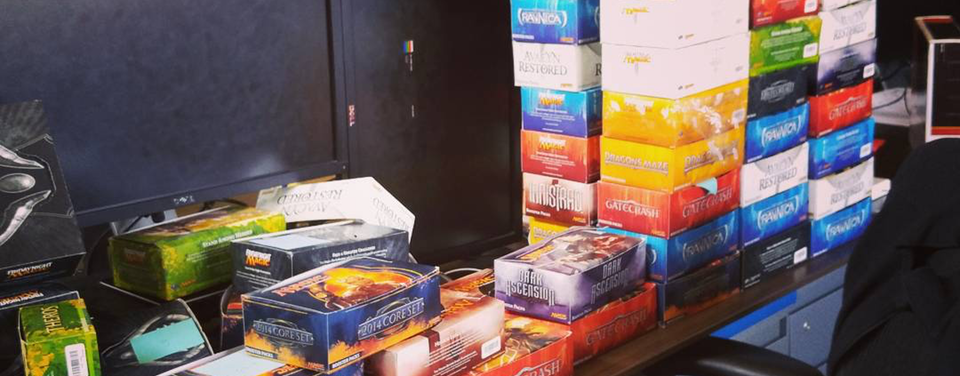
Fixing Game Economies
How I Learned to Stop Up the Sink and Love the Hero’s Journey
The Hero’s Journey and Wage Slaves
In the real world not everyone can be a winner. Not everyone is successful. I know it’s hard to believe, but there actually are people out there who don’t like their job. The way real world economies are built depends on a lower wage class — the wage slave. There has to be someone to work the low paying, thankless jobs from the garbage men to the guy at the counter at McDonald’s. Not everyone can make absurd amounts of money just by essentially ‘showing up and having fun.’ If that happened, our economy would come crashing to its knees. Inflation would rise uncontrollably until the dollar approached near worthlessness.
It would be just plain bad.
Game worlds don’t work like that though. In a video game, everyone can be a winner. In a video game, players want to have fun and win. They have that right. After all, they bought and paid for the game. Why should anyone be expected to play a game where they are just one of the unwashed masses teeming with mediocrity.
Unlike in the real world they don’t have to battle each other to be the best. They battle the environment and the monstrous inhabitants living there. Each individual player is on their own Hero’s Journey. They all are playing to become more wealthy and powerful and none of that really depends on the other players in the game. It might in some small way, but, by and large, games are built to allow a single player to succeed without the help of anyone else.
Along each step of this journey, as they gain more experience and get more powerful, they are able to accumulate wealth easier. This propagates economic models that show each player’s individual wealth and power grow on an exponential curve. Goods and services provided in the game don’t. And they shouldn’t. If prices went up for these goods and services, lower level players wouldn’t be able to afford them. They wouldn’t have any fun and the game would tank. This causes inflation within the game. More money, fewer products for you to spend it on.
Money Sinks Aren’t Working
To counter this exponential growth in wealth across the board, developers have tried to implement money sinks. They are trying to siphon money out of the system with things like paying for transportation or paying rent on any property the player’s character might own. The issue with this is that the sinks aren’t exponential and thus won’t match the character’s potential income. The growth in wealth will always outpace the cost applied to these sinks. Eventually, they will get to a point where the player is making so much money in the game that these flatly priced money sinks will essentially have no effect on their wallets and we’re back to the same problem.
The developers could scale the cost of these sinks up, but that’s silly. Just because my character is a higher level than yours, I have to pay a higher price for my equipment? Even though it’s the very same equipment you are purchasing? Shouldn’t that be the other way around? With money comes power and influence — price discounts, not increases. Regardless, not only are there metagaming ways around this weird price fixing (low level fences, for example) but, it’s just a terrible idea. How many players do you know that enjoy paying arbitrary ‘taxes’ in any game they play?
Why Do We Have Two Currencies?
The problem at the root of all this is the simple fact that a game has two currencies — experience points and money. really, these days, we have to have three currencies. two we earn and one we purchase with real money.
Sure the theory sounds like a greatgood idea, after all, you need more money to purchase better equipment so it should just balance out. But, the player doesn’t need every suit of armor or sword they come upon. Either their character can’t use it or it’s not as good as their current item so they sell them.
For example, you can kill 100 different monsters with a 10gp sword, but the items and equipment and money that come off of those 100 monsters are more than likely worth a lot more than the 20gp upgraded sword. That, and along the way you are getting experience points for killing the monsters. So, that 10gp sword gets more effective without anymore cost to the player.
In our example, it costs the player nothing to make fistfuls of gold and become more powerful. That 10gp sword is netting huge ROI because of the multiplying effect of having these two currencies. All this and it’s actually fun!
Money Equals Power
The simple solution is to tie money to power. If experience points were inextricably linked to gold, it would negate the desire to stockpile the money and reduce us back down to a single currency. If characters had to pay 1 gold (or however your currency breaks down) for each experience point, it would solve the problem. You need to pay for power.
This will make money scarce again. Does the player buy that new armor upgrade or do they put the money (in addition to experience points) into leveling up? What’s the best part about that money spent on leveling up? They aren’t buying anything they can resell and the gold required scales with power. It essentially drops us back down to a single currency.
This levels the playing field. Just because a character is a higher level doesn’t necessarily mean he can afford goods and services any easier than a lower level character. Sure, it’s easier for him to make and hold money, but players should be able to make that decision. Do you think they will want to hold the money and stagnate in their power or do you think they will spend that money on experience points and be broke again?
The idea of paying for training is essentially what we are talking about here. It’s an ages old concept in games — one that was done away with in this age of instant gratification. As it turns out, paying for training is actually a critical part of keeping the economy in check. It gives those players somewhere to spend their money.
Buy better equipment or advance in levels? It’s a fantastic choice to put to the player. Chances are that the entire game is built around choices like that anyway. Do you want the fireball spell or the strength buff spell? More mana or more hit points? This means it shouldn’t affect gameplay in any negative fashion.
In fact, it should actually enhance the gameplay by adding an additional strategic element to it.

